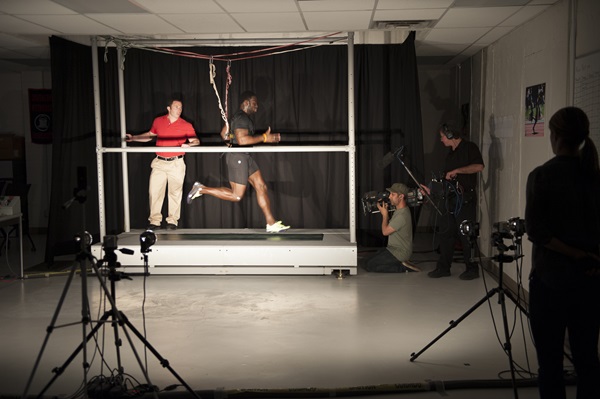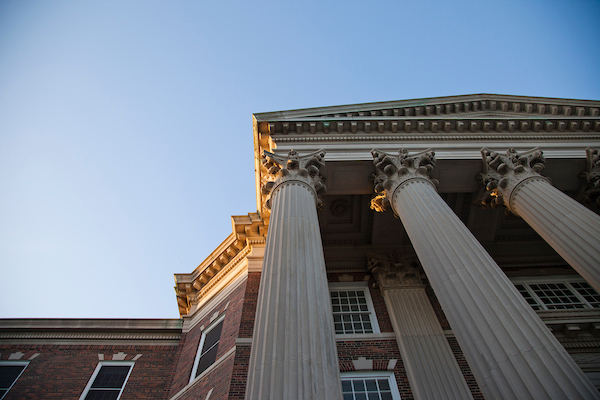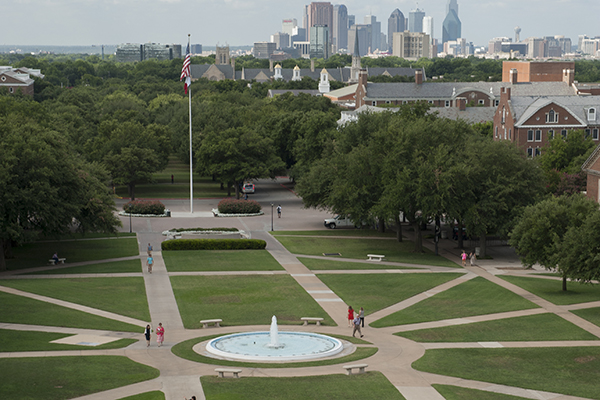Internal Faculty Awards and Funding Opportunities
SMU highlights the teaching, research, and service accomplishments of the SMU faculty in a number of ways. Information about internal awards and internal funding opportunities can be found below.

Teaching Awards
Each of these awards is administered by the Center for Teaching Excellence on behalf of the Office of the Provost. Nominations are solicited via email from the CTE each October. Faculty are honored at the January General Faculty meeting.
The Altshuler Distinguished Teaching Professor Award. Four tenured faculty are honored each year and serve for a 2-year commitment to support excellence in teaching at SMU. Nominations are solicited via email from the CTE each October. Faculty are honored at a reception during the spring Board of Trustees meeting.
Honoring Our Professors’ Excellence (HOPE) Award. Residence Life & Student Housing (RLSH) highlights professors at an annual banquet. Recipients are first nominated by students and selected by a review committee of faculty, students, and staff.
Rotunda Outstanding Professor. This award is administered by the Rotunda Yearbook staff to recognize faculty members with a high commitment to teaching. Recipients are awarded at the Hilltop Excellence Awards.

Resources for Teaching, Research, and Creative Impact
Gerald J. Ford Research Fellowships. The University Research Council (URC) accepts nominations for this award every November. Faculty recipients are announced in the spring semester and honored at a reception.
Provost Research Fellowship. This award provides research support to SMU’s outstanding scholars during the academic year with a $15,000 cash prize distributed by The Office of the Provost, the Vice Provost for Research and Chief Innovation Officer and the University Research Council (URC).
Second Century Faculty Career Achievement Award. This award recognizes one individual each year for remarkable contributions across the scope of a career by a tenured and currently serving SMU faculty member who has contributed to the teaching, scholarship, and service missions of the University. Nominations for this award are solicited every November. The recipient is recognized at a special reception every spring.
University Distinguished Professor. The University Distinguished Professorships were created in 1982 by SMU’s Board of Trustees to celebrate outstanding faculty members. Appointment decisions are based on recommendations from deans and endorsed by a six-person ad hoc faculty committee working with the Office of the Provost. Recipients are appointed for five years with the possibility of reappointment for one additional term.

Service Awards
Tom Tunks Distinguished University Citizen Award. This award is given to individuals who have demonstrated outstanding citizenship through dedicated service to the University and its governance. Recipients are announced at the graduation breakfast during the May commencement ceremony.
“M” Award. The Office of Student Affairs hosts the Hilltop Excellence Awards every spring to recognize students, faculty, and staff who have made outstanding contributions. The “M” Award is the highest honor provided at this event.

Internal Funding
URC Research and Travel Grants. Application cycles run every November and April maintained by the University Research Council (URC)
Dedman College Interdisciplinary Institute Research Cluster. Dedman College Interdisciplinary Institute sponsors research clusters convened by faculty across campus and open to participants from all disciplines and departments.
Just in Time Teaching/Technology Grants. Applications are due in early February maintained by the CTE. Email notification is sent from the CTE in January.
Stella Porter Russell Teaching Recognition Award. Full-time faculty who meet the criteria for instruction each year are automatically provided with a December stipend from this generous endowment.
Maguire Ethics Center Faculty Incentive Grants. These faculty grants are applied toward the enhancement of courses and publications that augment discussion, reflection, and application of ethical standards and public responsibility among all students and faculty.